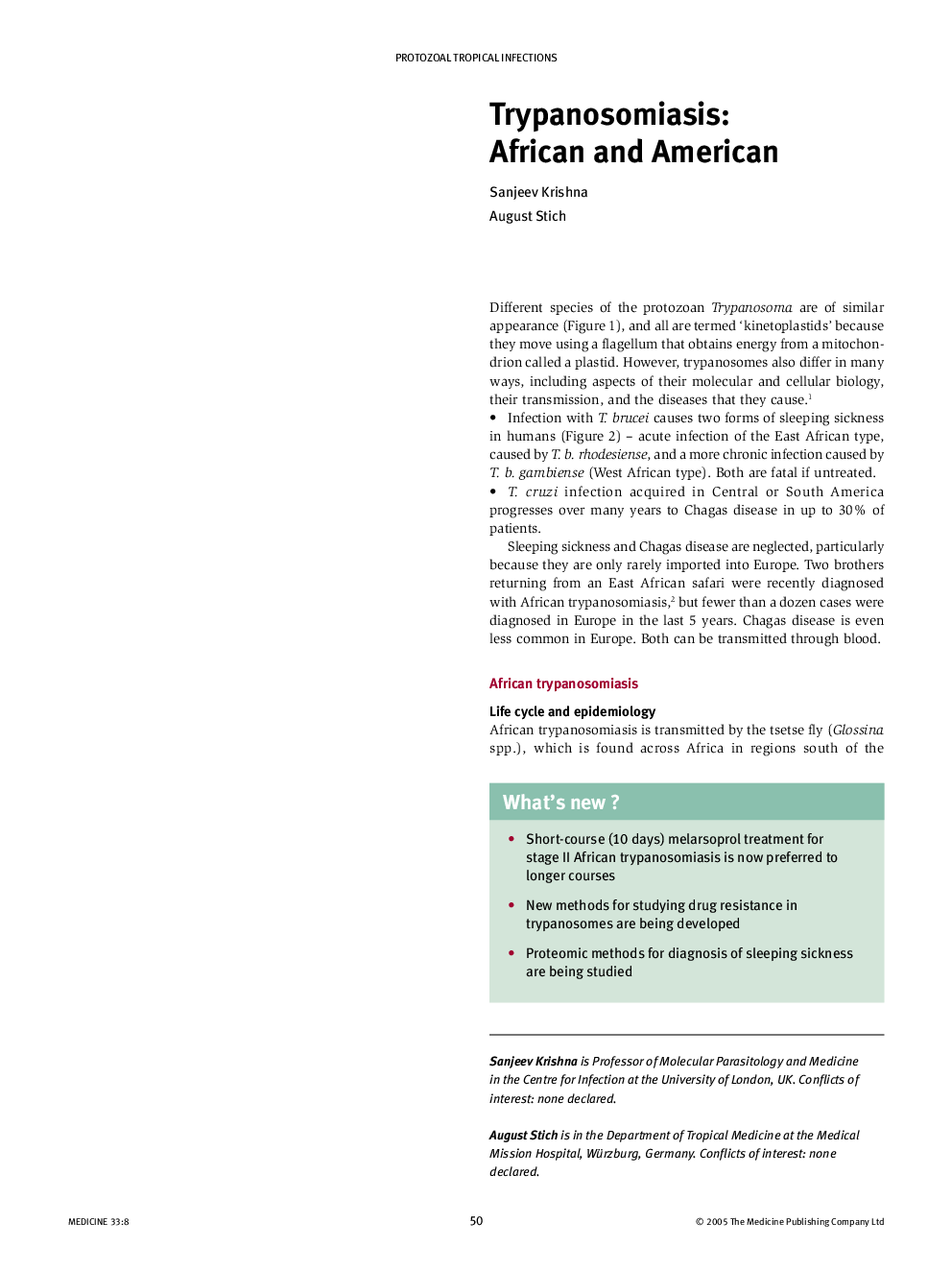| Article ID | Journal | Published Year | Pages | File Type |
|---|---|---|---|---|
| 9300206 | Medicine | 2005 | 4 Pages |
Abstract
Human African trypanosomiasis has increased in many endemic areas in recent years. It is caused by Trypanosoma brucei gambiense or T. b. rhodesiense, and is transmitted by the tsetse fly. Diagnosis is difficult, particularly in the West African type, in which organisms are scanty. Determination of the stage of infection (early haemolymphatic stage or late meningoencephalitic stage) is also problematic, and the few drugs available are associated with significant toxicity. Advances in understanding of the cellular and molecular biology of the parasites causing African trypanosomiasis now must be matched with improvements in diagnosis and treatment of this condition, which has a current prevalence of about 300,000 cases. Chagas disease is caused by infection with T. cruzi carried by blood-sucking triatomine bugs. The infection is often latent for several years, before progressing in 15-30% of individuals to disabling organ involvement and 'mega'-syndromes. This South American infection is difficult to diagnose and there is no effective treatment for established infection.
Keywords
Related Topics
Health Sciences
Medicine and Dentistry
Medicine and Dentistry (General)
Authors
Sanjeev Krishna, August Stich,
